Léonore has been a volunteer at Karuna since 2020. She joined the organization at the age of 20, from Grenoble where she is studying, and participates in the advocacy circle. She shares her experience and thoughts, illustrated by pictures she took.
What do you do at Karuna?
The tasks have evolved over time, although it has always been in advocacy: summarizing roundtable discussions, transcribing videos, writing draft editorials that Matthieu reworks, thinking about the structure and initial versions of Matthieu Ricard’s blog posts. And then, participating in meetings, having one more person always brings more ideas.
How did you discover Karuna?
I became familiar with it through Matthieu Ricard’s books. We talked about it at home. My parents often mentioned the works of Yahne Le Toumelin. I enjoyed browsing through Matthieu’s photo books and later reading his books. I had been a volunteer paramedic at the Red Cross for several years, and then I got involved with Karuna in continuation.

What touches me about Karuna is the belief that altruism is a remedy, that it contributes to reducing certain sufferings. It is both the source and the driving force of the living organism, its raison d’être. Volunteer work in humanitarian organizations is often imagined as a somewhat messianic “mission” abroad, on the “field.” Here, it is extremely humble, it is about contributing on a small scale while continuing my academic curriculum alongside. Thus, I have an action that deals with missions in the field and responds to a need, to more local sufferings. That’s the meaning of advocacy for me.
What does Karuna bring to you?
Wow. So much… I feel like Karuna brings me more than what I bring to Karuna. To see the development of projects in India, Nepal, France, over the weeks, months, and years, it’s so encouraging. Just looking around us can make us despair of the century and sometimes feel powerless in the face of environmental, social, political, and economic challenges. And that’s normal. It’s normal to feel overwhelmed, individually and sometimes collectively. Karuna is a support. The structure of the organization, which is more akin to a living organism than a concrete structure with fossilized principles, precisely allows us to meet these challenges by combining principles and practices.
I would say that it brings me the possibility of contributing on a small scale to a larger project within an organization. And then the positive gain of altruism: I have joy in taking altruistic action. The small missions bring me reflexivity, it often involves writing, research, and reflection. It complements my academic research work and my broader interests. The functioning of Karuna is particularly inspiring. It is closely linked to the theory of effective altruism developed by Peter Singer. It is about rationally and objectively questioning how to use the available means to maximize the possible good, with the time and energy allocated.

Also, Karuna is a kind of organic family. What’s amazing is that it’s a space where I evolve as a person. Since I arrived at the age of 20, Karuna has contributed to the person I am today. It’s a space for exchange, for listening. It’s also an energy reserve, like when a car needs fuel or we need legs to ride a bike. Karuna is a consciousness station and a hope station.
Karuna is an NGO that takes care of both the beneficiaries and the members of its organization with great intelligence. In fact, it combines the rational (adapting to problems through study and discussions), the emotional (acknowledging needs and emotions), the collective (building relationships, shared values), and the organizational (effective altruism, common direction).

Listening and values are fundamental for everyone. This is particularly inspiring within an NGO. Tensions are seen as an opportunity for growth, and everything is in place to encourage open and vulnerable communication. This is an aspect of Karuna that may not be very visible, but it is essential and inspiring.
Given the state of political, environmental, and social degradation, this provides a vision of collective action with positive consequences. It’s a breath of fresh air: it’s possible, we must continue, not give up. There is much to continue. It’s not about creating tomorrow, it’s about creating now, together. And precisely in Karuna, action is present in responsible, sustainable, and altruistic creations.
Léonore is a passionate student who has crafted an academic path combining diverse subjects but with a coherent objective. Conversations with her are always very interesting, punctuated with profound ideas and references to philosophy, literature, and science.
I completed a preparatory class (khâgne ULM) specializing in philosophy and ancient Greek, and then I specialized in philosophy of cognition in a double degree program with the Grenoble School of Management, which I left this year in search for coherence. In addition, I am studying Sanskrit in a university diploma program on classical Indian language and culture.
What is interesting about medical humanities is the biopsychosocial and integrative approach: we consider diseases within holistic systems, not reducing the pathologies of living beings to purely physiological properties. We are starting to discuss prenatal conception and the cumulative impact of environmental factors on health, such as social factors. This aligns with the logic of One Health, which combines human, animal, and environmental health.
The idea is that we cannot expect a healthy body in a sick world, and we must take care of the ecosystem for both patients and society to be healthy.
Do you feel eco-anxious?
I wouldn’t say it’s pathological; I don’t experience anxiety or panic attacks. However, I have a strong sense of concern. Being particularly sensitive to mountain environments – I chose to stay there for my studies – I can clearly see the impact that the environmental context has on natural landscapes, and it’s extremely worrying.
That being said, I believe it’s important to maintain a sense of wonderment in order to take action. For me, the driving force to act comes from knowing that there are plenty of opportunities for awe, rather than being paralyzed by anxiety about ecosystem destruction. It’s a matter of personal narrative. I adapt my choices to this context, such as considering transportation means, for example.


These are choices that are sometimes constrained, but it is a liberating constraint. By transforming small things, we experience things that we wouldn’t have otherwise while aligning our lifestyles with healthy sustainability. Certainly, on the spot, we may think it would be simpler to take a certain means of transportation from A to B because the paradigm we grew up with is that simplicity equals speed. We need to question our frames of thought so that adopting sustainable choices makes sense.
What is frustrating is having this personal commitment and being surrounded by peers and loved ones who adopt the same behavior. We resonate with each other, but it remains within circles, within information bubbles. On a larger scale, there is a significant gap between personal and collective practices. Deterioration is happening very, very quickly, and a higher level of commitment is needed.
Camus, in the preface of a book by Giono, said: “No revolution is possible if it has not first begun in the heart and mind.” I think that’s it: it’s important to have these practices ourselves, to internalize them, and then propagate them on our own small scale through exchange.
Do you think “la sobriété heureuse” (happy sobriety) is a solution?
Certainly, it is something I would like to strive for, adapting it to my current student context. For the future, it would also make sense for my personal autonomy. I try to live my life and make choices that align with what makes sense and resonates with me. It is not always in line with where everyone else is going or the current trends, or even what is easiest. For example, I would like to have the possibility of being self-sufficient in energy, participating in community gardens, and communities. In any case, we need to be realistic: being self-sufficient in energy and food, while having a job on the side, is impossible without a community.
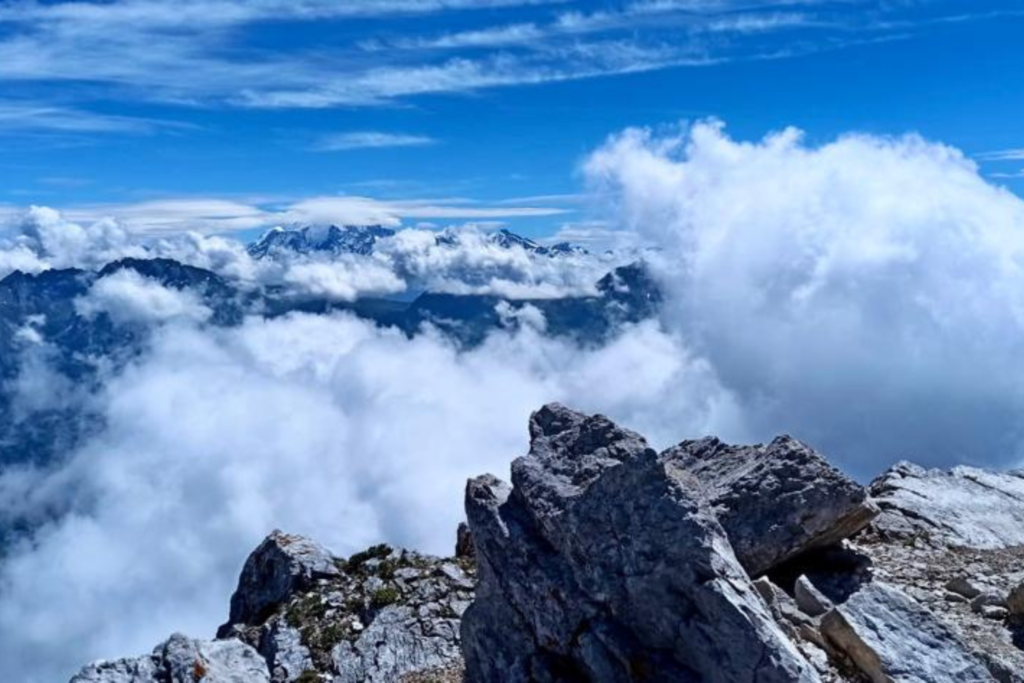
Intergenerationality is also an important dimension of this future. We need to consider models on a horizontal level, fostering our own practices of mutual support and kindness within family and peer circles, as well as between generations.
Do you practice meditation?
Actually, I’m a yoga teacher, so the practice often goes through that channel for me. When COVID started, I created a small platform to offer voluntary strength training/stretching classes to other students in the preparatory program. It went well, it was pay-what-you-want, and we created rituals, doing multiple sessions per week. I underwent training and became certified between 2020 and 2021.
What motivated this initiative?
Yoga is often reserved for people who can afford it. The idea was to make it available on a donation basis, allowing people who wouldn’t have had the opportunity otherwise to practice it.
The goal was not to make a living out of it, so I didn’t promote it. There are people for whom it is their livelihood, so I wanted to stay in my lane and not engage in unfair competition. It spread through word of mouth. The people who attended the MinuteSport strength training sessions in the preparatory program formed the Yoga class, which remained flexible since there was no financial commitment.
Do you continue?
I stopped this year because I got injured. But aside from the injury, I would like to consider offering classes in other formats more qualitatively. The online aspect is quite restrictive.
And right now, I don’t think I’m in the right state. It would be paradoxical to offer a relaxation class when the teacher is super stressed: it wasn’t the right time, so I didn’t do it. You have to be coherent.
Do you have any other personal projects like that?
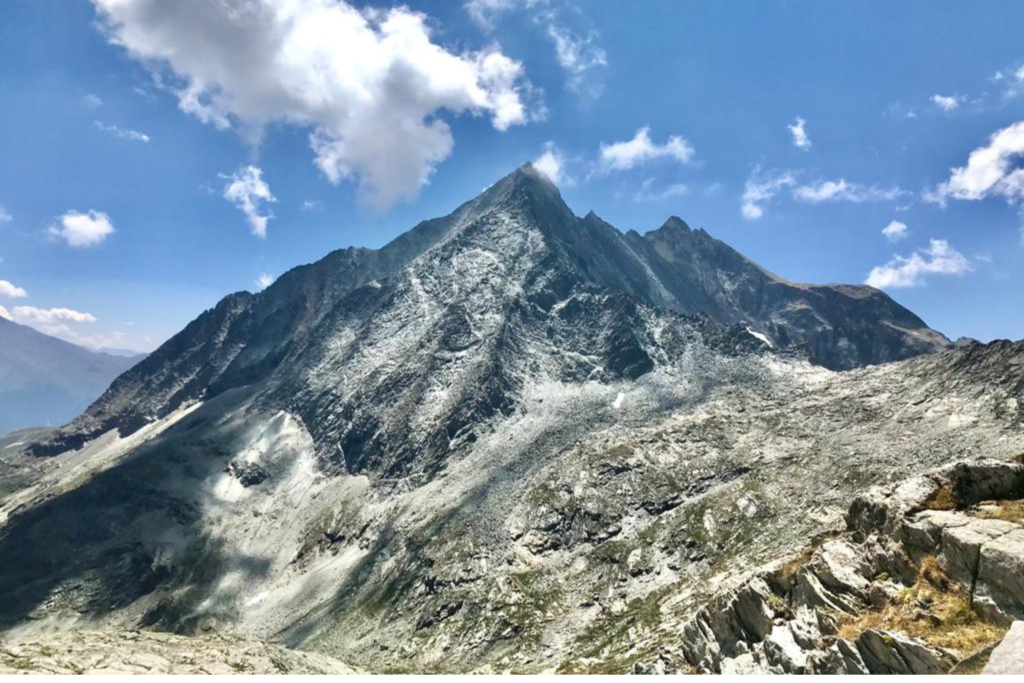
Yes… I’ve been in the process of creating an association for several years, Palimpseste, to read with hospitalized children or those in palliative care on a voluntary basis. The process is challenging, but the project is still ongoing. I also started a business during my studies with a partner: In.beoutdoor, an eco-friendly outdoor textiles and accessories brand. Lastly, I began organizing a winter open water swimming competition, Givre. It didn’t happen because of COVID. I had taken steps to become a student entrepreneur and applied to an incubator, but sporting events weren’t really a priority at that time. But it’s still there, like Palimpseste.
Sometimes, it’s not a lack of work or motivation; you just have to wait, and it happens over time. It’s just that one piece of the puzzle is missing. I am confident. That’s somewhat the meaning of life: certain things happen to us or don’t happen, and we can be surprised by them at the moment, but later it makes sense. It opens up opportunities.
Coming back to meditation, what role does the practice play in your life?
I practice meditation, in the sense of sitting and meditating regularly, for a relatively short time. I believe that, here too, we need to give the practice time to settle, for the gentle discipline to establish and ritualize itself. There are periods of life, more or less lengthy when we completely stop, and others when it’s more conducive.
I started young, but my practice was very sporadic, then it grew and took up more and more space. But it’s a space that feels good, and it’s also an asceticism, a positive self-discipline, that is necessary for existence, even if it’s not very trendy currently.
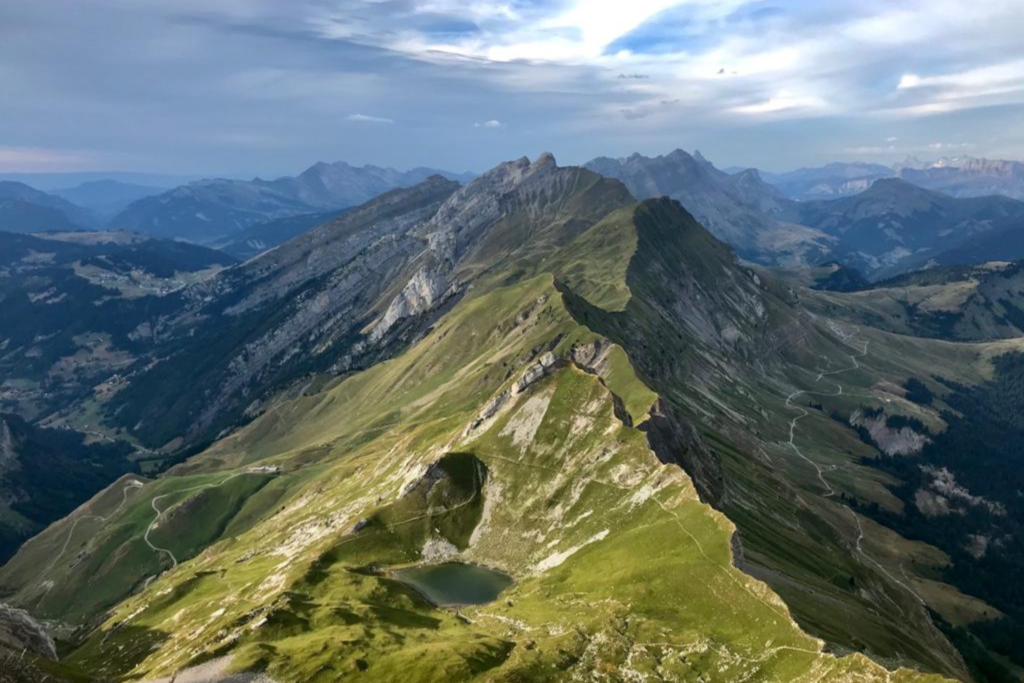
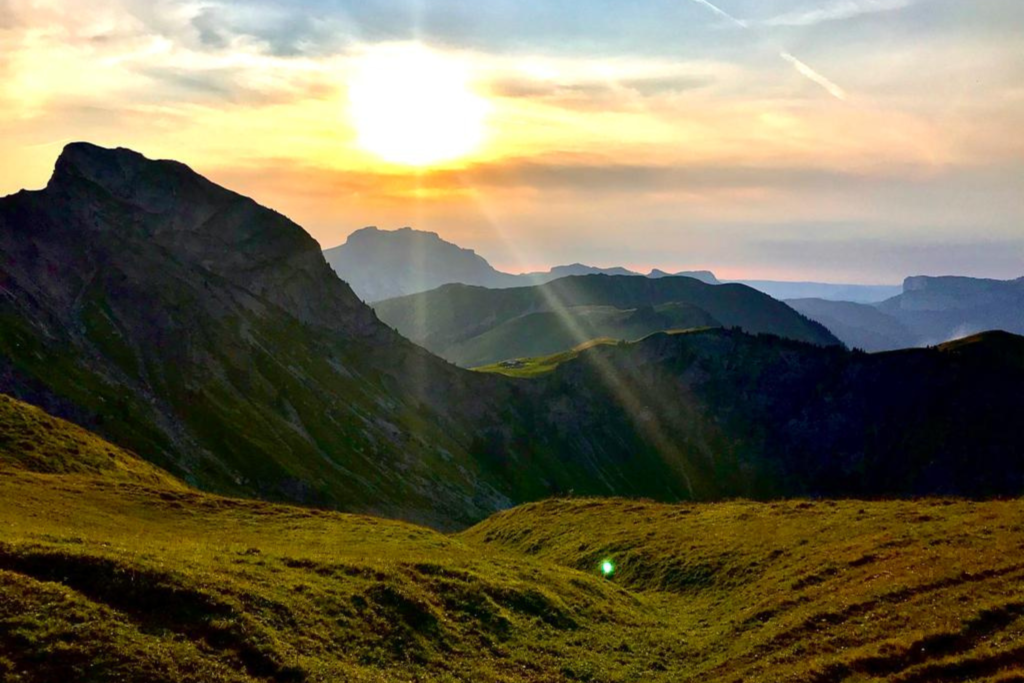
Now, I meditate quite regularly, every day, every two or three days, sometimes with guided practices, sometimes alone, or with music. I approach it in a flexible way: I take a moment to sit and let my mind settle as well.
But I also practice mindfulness in my daily life. Any activity can have a meditative aspect. For example, walking, especially in nature: one can have a meditative approach, in a beneficial sense. It’s the essence of the Japanese therapy shinrin-yoku, forest bathing. I particularly practice mindfulness when I do sports: I am completely in the present moment. It can be because we tap into our resources to push ourselves further or to be okay with doing less and listening to ourselves.
We come back to the question of narrative and meaning: what narrative do we associate with performance, why do we engage in sports? It brings not only reflection but a state of being, more intuitive than intellectual. It becomes a flexible and modular framework: adaptable to situations while allowing us to adapt ourselves.
You mentioned the benefits of asceticism. But what brings you joy in life?
Mountains, reading, laughing, and enjoying friendship. Certainly, I am aware of an extremely critical situation, but I retain a sense of inner joy. Everything is impermanent.
The idea is not to let go, but to give each minute its importance and embrace an ecological approach to existence, which means we don’t need grandiosity to enjoy life. We can find moments of joy here and there, even in difficult times. Fully embrace and recognize that we are here. You have your feet on the ground but your heart open to the Universe in the creative sense of the term.
Are you happy?
It’s difficult to answer that question; we would need to define what happiness is. There are moments of great joy, of course, but does being happy imply a somewhat existential foundation, a latent state? If so, then that’s not the case for me; there is an internal conflict that prevents it. Fundamentally, there is a melancholy.
In any case, there are so many inequalities, states of suffering… There is a level of human resonance where one cannot be in a state of absolute happiness. Being trapped in one’s own happiness while there is extreme suffering nearby… It’s not about suffering from empathy, but by being aware, we factually perceive certain events. It also evolves with life and the events that occur.
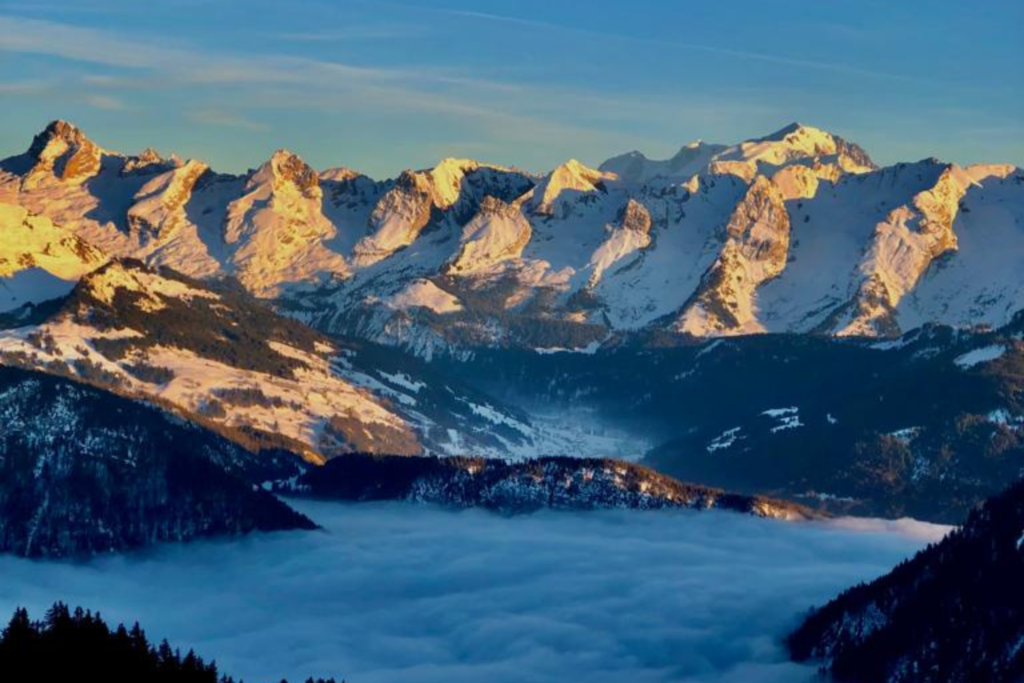
Did studying philosophy help you in your personal questioning?

Having the opportunity to have the space to reflect and learn the framework of thinking that allows for dialectics of the mind. It helps to have a perspective, to interpret. Philosophy is often criticized for being solely contemplative. But philosophy is about being and doing, just like meditation, you have to do it to be it. The difference is that philosophy remains in the conceptual realm; it lacks practical application, a clinical approach. Precisely, there is a therapeutic and clinical dimension to philosophy. It goes beyond concepts; it is a way of living, of perceiving. Regarding my own questions, it has reframed them, changed some answers, and raised new ones…
Any closing thoughts?
I would like to talk about the question of engagement. We can all engage in our own way in our daily lives. The quality of being that we cultivate daily, the kindness of the heart and mind towards the people we encounter. It may seem insignificant, but a smile, a word, a gesture, attentive presence, can restore confidence and alleviate certain sufferings.
There is a sense of urgency, but let this urgency not paralyze us into resigned cynicism, resulting only in widespread apathy. Let it be a driving force. We can engage in what matters to us, starting from a subject that touches us to do something. It can be on a local level. For example, if we care about animal welfare, we can take action in that area. Or if it’s sports, we can start from there to engage in environmental causes: advocating for sustainable and respectful ski resorts or trails. We can start from our sensitivities to take action.
